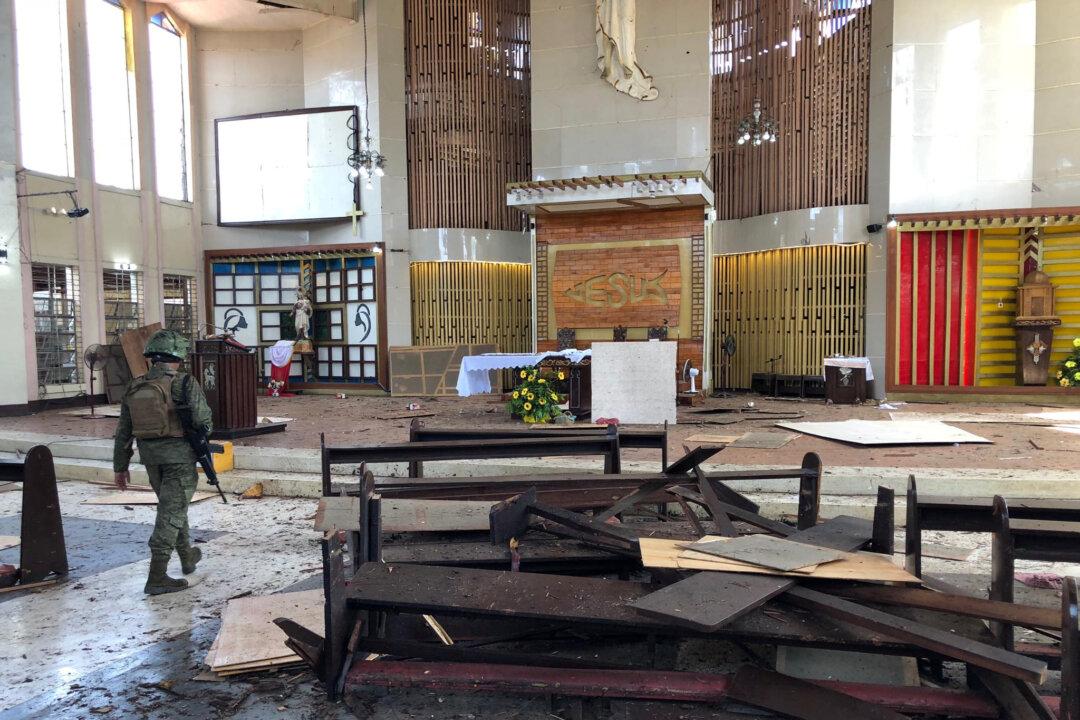A senior Abu Sayyaf operative and four members of the Islamic terrorist group believed to be behind the deadly bombing of a church in the southern Philippines surrendered to authorities over the weekend, the national police chief said on Feb. 4.
Kammah Pae, whom authorities believe to have aided an Indonesian couple in the Jan. 27 suicide attack, gave himself up to government troops, Oscar Albayalde said.





